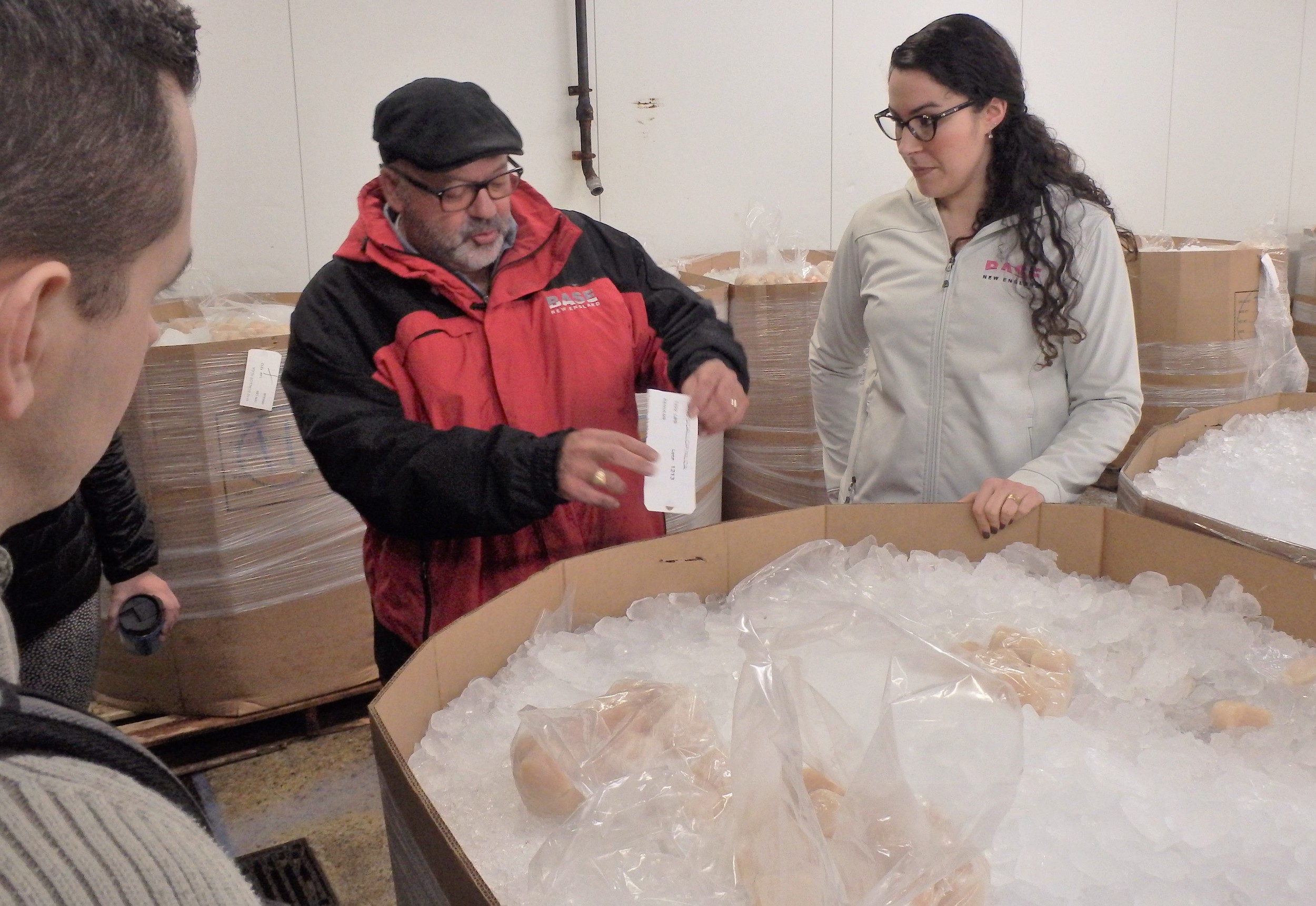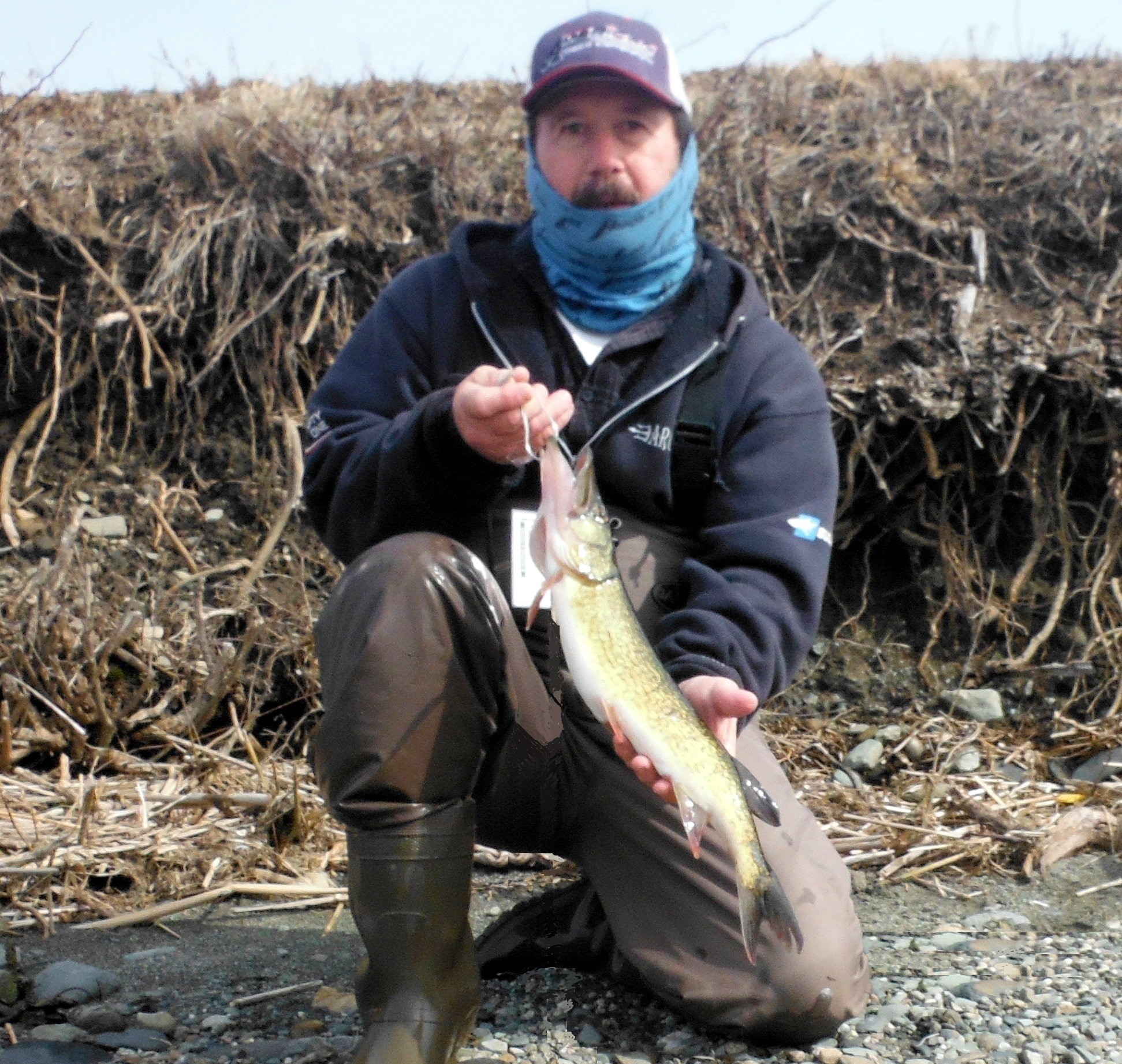Fishermen schooled on ecosystem-based management
Last week representatives from the fishing industry went to school in New Bedford to learn about ecosystem-based fisheries management and how to facilitate its use in fisheries management. I attended as one of three recreational fishing industry representatives along with thirty-five commercial fishing industry representatives, NOAA scientists and fish managers.
Understanding how fish species, ecosystems and the environment are dependent upon each other and then managing them together was the focus of the workshop.
A good example of ecosystem-based management would be how the Atlantic States Marine Fisheries Commission (ASMFC) aims to manage Atlantic menhaden, a form of herring that is commonly used as a recreational bait fish in the northeast. Single-species management would have you leave enough of them in the water achieving Optimum Yield (OY)… so the population continues to grow at a maximum rate.
However, ecosystem-based management would utilize a multi-species model to manage Atlantic menhaden. The model would consider their value as forage fish to striped bass, bluefish, tuna, and birds such as osprey as well as their value ecologically as filter feeders.
By feeding on algae-causing plankton, an adult menhaden can filter 2.4 gallons of water per minute, providing a valuable service in bays and estuaries where nutrient runoff becomes concentrated.
Algae growth creates oxygen in the water (like other plant growth) but when it starts to die it uses oxygen and can create hypoxia (or low oxygen levels in the water) which can cause fish kills.
The multispecies model would have you leave enough Atlantic menhaden in the water to continue to grow the population at optimism yield, but also to fulfill forage fish and ecological objectives.
The Marine Resource Education Program (MREP) conducted the workshop at the Fairfield Inn, New Bedford. It was sponsored by the Gulf of Maine Research Institute. The Institute is a non-profit research center dedicated to being a catalyst to find solutions to ocean and fisheries challenges.
Last week’s MREP workshop on ecosystem-based management included field trips to the ports of Pt. Judith as well as visits to fishing industry facilities in New Bedford. In Pt. Judith participants toured Superior Trawl (a fishing net manufacturer owned by Jon Knight) as well as Town Dock, a fish processing company and a tour of a ‘Study Fleet’ vessel to view their on board catch and effort computer software.
In New Bedford participants attended a live scallop auction at Whaling City Auction and then took a tour of BASE New England’s facility where the auction takes place. A tour of Sea Trade, a fish processing facility, was next on the agenda. The facility processes scallops, lobsters and dogfish and markets them internationally.
My big takeaway from the workshop was how climate change is facilitating the use of ecosystem-based management. Warming water has created a great deal of fish movement north. Warm water fish like black sea bass, summer flounder, scup are now in abundance in our waters with reduced biomass in southern areas. Also cold water fish such as winter flounder, cod and lobsters have moved out of our region for cooler water.
This fish movement has created havoc with conventional catch limit models and allocations. Those areas that have dwindling stocks have the same high catch limits that they had when fish were in abundance and those areas north that have an abundance of fish have lower quotas.
The hope is that ecosystem-based management will help address fish movement allocation issues. However, it is not going to be easy because many commercial fishermen travel to catch fish so they do not want to give up allocations to states where there are now an abundance of fish. Some recreational anglers are not interested in giving up allocation either.
MREP was founded in 2001 to provide fishermen the tools and information needed to foster conservation while creating an understanding of the science and management tools used to regulate fisheries. Additionally, it helps policy and science professionals to become more familiar with the workings of the fishing community. Programs are run in several locations throughout the year.
Programs such as the Marine Resource Education Program provide fishermen with an important link to education, enhanced communication, and foster a better understand between fishermen, fishing communities, scientists and fish mangers. For information visit www.gmri.org.
Fishing show this week
Don’t miss the New England Saltwater Fishing Show this week, March 9 to 11 at the Rhode Island Convention Center. Steve Medeiros, show director and president of the RI Saltwater Anglers Association (show sponsors), said, “We now have seventy workshops and seminars and over 300 exhibitors. It is the largest show of its type in the northeast.” The fishing show includes tackle, rods, reels, lures, electronics, charter guides, boats, motors, accessories and clothes.
Show hours are Friday, March 9, 1 to 8 p.m.; Saturday, March 10, 9 a.m. to 7 p.m.; and Sunday, March 11, 10 a.m. to 5 p.m.
Sunday is family day at the show. All women and children under 12 will be admitted free on Sunday, March 11. A scavenger hunt for children will be held Sunday. As a child enters the show with a parent they are given a Scavenger Hunt search sheet that can net them a variety of prizes.
Tickets for the show are $10 at the door. Children 12 and under are admitted free. Visit www.nesaltwatershow.com for special advance sale discounted tickets.
Where’s the bite?
Cod fishing was pretty much off the table last week with the big blow we had. Winds off Narragansett were clocked as high as 80 mph. The hope is that calming seas and warming weather will heat up the water and stimulate bait movement and the cod bite.
Freshwater fishing has been the only game in town with the wild weather we have been having. Anglers are fishing and catching trout and pickerel and as the weather warms… largemouth bass. Last week angler John Migliori said Saturday, “Today I caught a nice 22 inch pickerel on the same lure at the same location that I caught my first bass of the year (Melville Pond, Portsmouth). And, of course it was on my favorite lure, a Shadeycreek Spinner Lure. Soon the other species will be getting into the action… bluegill, yellow perch and others. But right now I'm really enjoying the bass and pickerel action while it lasts.”
Captain Dave Monti has been fishing and shellfishing for over 40 years. He holds a captain’s master license and a charter fishing license. He is a RISAA board member, a member of the RI Party & Charter Boat Association and a member of the RI Marine Fisheries Council. Contact or forward fishing news and photos to Capt. Dave at dmontifish@verizon.net or visit his website at www.noflukefishing.com.









